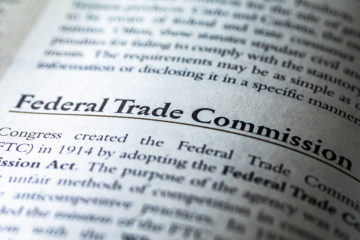Under the Biden administration, the Federal Trade Commission (FTC) and the Department of Justice’s (DOJ) Antitrust Division waged an aggressive campaign against mergers and business practices that, in reality, benefited consumers, workers, and competition. Often referred to as “neo-Brandeisian” antitrust, their approach was better described as bizarro antitrust—where blocking competition somehow helped competition and forcing companies into bankruptcy was pro-worker.
From stopping the Kroger-Albertsons merger to attacking Amazon’s business model and blocking the Spirit-JetBlue merger, Biden’s regulators prioritized ideology over economic reality. The result? Fewer choices, higher costs, and lost jobs.
Now, with Andrew Ferguson and Gail Slater set to take over at the FTC and DOJ’s Antitrust Division under Trump, there’s hope for a return to sound, market-driven antitrust policy. In a new article at Real Clear Markets, Market Insistute Senior Fellow Norm Singleton outlines just how damaging the Biden FTC policy was.
“The Biden Adminstration’s Federal Trade Commission (FTC) Chair Lina Khan and Justice Department Antitrust Division Head Jonathan Kanter’s approach to antitrust enforcement was often referred to as “neo” or hipster Brandeisian. A more appropriate label would be “bizarro” antitrust— since the only place neo-Brandeisian helps workers, consumers, and small businesses is in the bizarro world where things are the opposite of how they are in our world.
For example, the Biden Adminstration’s FTC stopped the merger of grocery store chains Albertsons and Kroger. The agency claimed that the merger would give Albertsons and Kroger excessive market power—even though after the merger they would still only control 13% of the grocery market— compared to Wal-Mart’s 22% share. In the real world, the merger would have enhanced Kroger and Albertsons’ ability to compete with big box stores like Wal-Mart, Target, and Costco. But, in the the FTC’s bizarro world—Kroger and Albertsons only compete with other “traditional” grocery stores—not big box stores.
The Biden Administration’s FTC case against Amazon also seemed to be from bizarro world. The FTC claimed that Amazon— which became the world’s largest internet retailer because of their low prices—is increasing prices of online goods. The FTC bases this claim on Amazon’s requirement that businesses wishing to use Amazon’s platform agree to not sell their products at a lower price on any other platform. The FTC also claimed Amazon abused its power by requiring businesses that want to sell their products through the Prime program to use Amazon’s warehousing and shipping services. The Biden FTC failed to acknowledge that these requirements are necessary to ensure that Amazon’s reputation for offering the lowest prices and the fastest delivery available is not undermined by other businesses that Amazon allows to use its platform.
If the FTC wins this case, Amazon may limit the number of businesses that can use its platform. This will deny many small businesses the opportunity to reach new customers from around the country—and deny consumers the opportunity to discover new businesses and products. Yet in Biden’s FTC bizarro world, the lawsuit is somehow “pro-small business” and “pro-consumer.
Biden’s Antitrust Division of the Justice Department was also a resident of bizarro world. It thought consumers would benefit if Google was forced to sell its popular Chrome browser and forbidden from contracting with device manufacturers (like Apple) to have Google installed as the default search engine on its devices. Google is already required to provide a “choice screen” on Androids sold in Europe so users may select their default browser, and yet still controls 92% of the European browser market. The Justice Department’s lawsuit will force consumers to waste time and money downloading Google and the popular Google apps that currently come pre-installed at no charge.
Perhaps the most bizarre example of Biden’s Justice Department embrace of bizarro antitrust was its successful lawsuit blocking the merger of discount airlines Spirit and Jet Blue. The DOJ argued the merger would make the airline market less competitive—and thus hurt workers and consumers—even though the merger would have helped Spirit get out of debt and rebuild the company. Since the merger was blocked , Spirit has laid off workers, reduced flights, and filed for bankruptcy.
Andrew Ferguson, President Trump’s pick to replace Lina Khan, and Gail Slater, Trump’s pick to replace Jonathan Kanter at the Justice Department’s Antitrust Division, will likely reject bizarro antitrust in most areas.”


